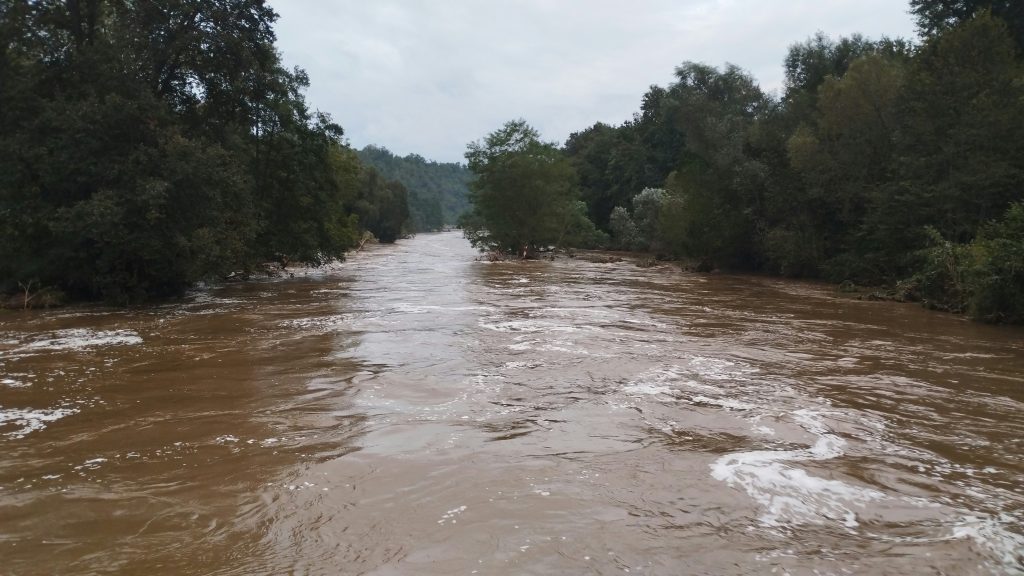Asheville, North Carolina, a picturesque city known for its vibrant arts scene and stunning mountain vistas, is grappling with the aftermath of Hurricane Helene, which has left the community reeling from unprecedented flooding. The storm, which made landfall with heavy rains and strong winds, has caused significant damage to infrastructure, homes, and businesses throughout the region.
Residents of Asheville have reported harrowing experiences as the Swannanoa River swelled and overflowed its banks, inundating streets and neighborhoods. Eyewitness accounts describe moments of fear and anxiety as floodwaters rapidly rose, leaving many scrambling to evacuate their homes. Emergency services have been stretched thin as they respond to numerous distress calls from residents trapped by the rising waters.
In response to the escalating situation, city officials have implemented a curfew to ensure public safety amid widespread flooding and power outages. The Asheville Water Resources Department has also reported low water pressure and outages in Buncombe County, further complicating the recovery efforts.
The flooding has not only affected residential areas but has also severely impacted downtown Asheville, where floodwaters have wreaked havoc on local businesses. Main streets that once buzzed with life are now submerged, with many establishments facing significant damage. The community is coming together to support those affected, with volunteers mobilizing to assist with cleanup efforts and provide shelter to those displaced by the storm.
As rescue operations continue, authorities are urging residents to remain vigilant as the threat of landslides looms over the region. The heavy rains have saturated the ground, increasing the risk of further geological instability in the coming days.
The city’s response team is working tirelessly to assess the damage, restore power, and ensure that the needs of the community are met. As Asheville begins the recovery process, local leaders are focusing not only on immediate relief efforts but also on long-term strategies to mitigate future flood risks.
The impact of Hurricane Helene serves as a stark reminder of the increasing frequency and intensity of tropical storms in recent years. As climate change continues to alter weather patterns, communities like Asheville must prepare for the potential of more severe storms and flooding in the future.
In the face of this disaster, the spirit of the Asheville community shines through. Neighbors are helping one another, local organizations are rallying resources, and there is a collective determination to rebuild and recover. As this resilient city navigates the challenges posed by Hurricane Helene, the road ahead may be long, but the strength of its community will undoubtedly guide it through the recovery process.

